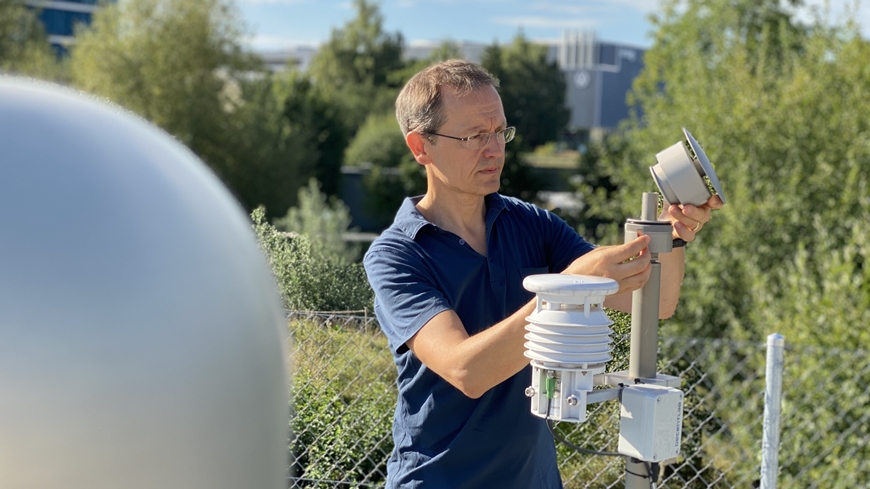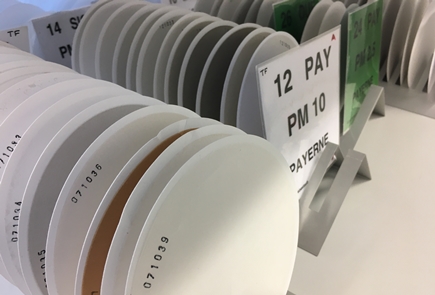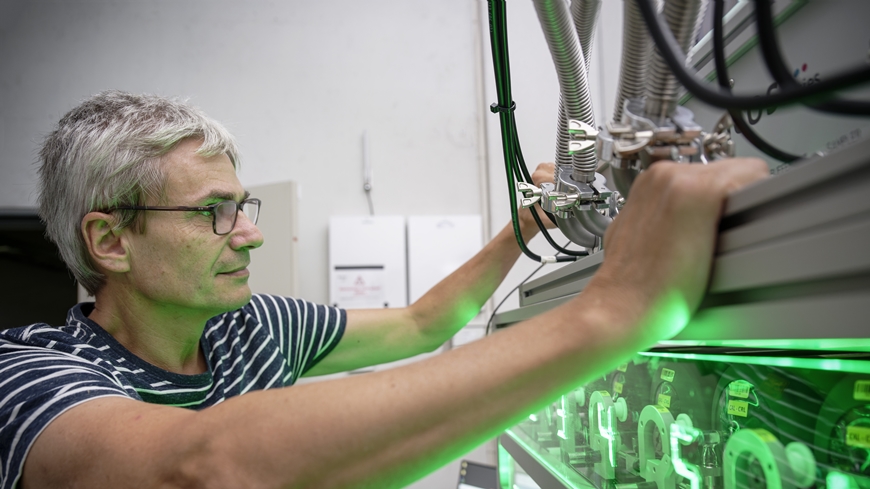Air pollutants
What makes particulate matter so dangerous?

Inflammation, bronchitis, asthma attacks, cardiovascular problems ... – an excerpt from the list of possible health problems caused by high concentrations of particulate matter: particles with a diameter of ten micrometers or less – called PM10 – and even smaller PM2.5 particles that can enter our lungs from car exhaust, heating systems, industrial operations and natural sources. Although strict monitoring and abatement measures have reduced pollution levels in Switzerland since the 1990s, the problem persists in many places, especially in cities.
Particle size, composition, sources and effects of particulate matter are not easy to determine. One thing is certain: the smaller the particles, the deeper they reach the human lungs. But which fractions are particularly dangerous? And in what combinations and concentrations? To describe this, a new criterion termed oxidative potential had been developed a few years ago: a term intended to describe the ability of inhaled particles to trigger the formation of so-called free radicals in the body, which can ultimately lead to inflammation.
Samples from five locations in Switzerland

Empa researchers Stuart Grange and Christoph Hüglin from the Air Pollutants / Environmental Technology lab have investigated the suitability of this criterion for the assessment of health risks with samples collected Switzerland in greater detail – with an elaborate measurement campaign supported by the French Université Grenoble Alpes. With the help of the National Air Pollutant Monitoring Network (NABEL), which Empa operates together with the Federal Office for the Environment (FOEN), they collected particulate matter samples in the PM2.5 and PM10 categories around the clock between June 2018 and May 2019. The measuring stations covered the entire range of particulate pollution levels and were located in cities, the agglomeration and in rural areas south and north of the Alps.
In total, the experts analyzed around 900 samples in the laboratory – using test methods for oxidative potential that work with different analysis substances: ascorbic acid (AA for short), dithiothreitol (DTT) and dichlorofluorescein (DFCH). In the AA test, the consumption of ascorbic acid, an important antioxidant, allows conclusions to be drawn about the oxidative toxicity of the sample under investigation, for example due to metals contained therein. The other two methods work in a similar way. Put simply, says Christoph Hüglin, the three methods offer different perspectives on similar biological processes.
Machine learning

In addition to the oxidative potential, a large number of chemical constituents of fine dust were analyzed. This resulted in a large amount of data on the elements, ions and organic substances that make up fine dust in Switzerland. In order to identify the suspicious substances with the greatest oxidative potential in these masses of data, the Empa researchers used machine learning methods. More precisely, they used the Random Forest algorithm, which, metaphorically speaking, allows a forest of countless trees to grow; each tree then makes decisions about relationships in the data – such as, in this case, the ingredients of particulate matter and the associated oxidative potential. In the end, a mean model is formed from the decisions of the entire forest.
In this way, the experts reduced the number of suspicious constituents to about a dozen, which they in turn analyzed using conventional computational methods and models to finally track down the most important health hazards – different metals or even organic substances, which in turn provide clues to their origin.
The results confirm known facts such as a clear urban-rural divide in particulate matter and its associated health consequences, as well as higher pollution in winter than in summer. Admittedly, there are exceptions: The oxidative potential, related to the air volume, had increased particularly significantly in Southern Switzerland during the cold season – in areas that were polluted by smoke from wood burning during this period.
Rural areas showed the lowest mean values, while the highest values throughout the period came from an urban measuring station exposed to heavy traffic. At busy intersections in cities, other emissions besides exhaust gases are a cause for concern: Metals such as copper, zinc and manganese indicate particulate matter components that may originate from the abrasion of car tires or brake pads, for example.
How exactly the criterion of oxidative potential can describe health hazards is currently the subject of controversial debates among experts. After all, even the most precise measurements and analyses of air pollutants do not answer open questions about inflammatory processes in the human body. But Empa researcher Hüglin assumes that sensible measures can be derived from their analyses: Although all fine dust particles could affect health, with regard to the oxidative potential, particles from road traffic, which do not originate from exhaust gases, as well as those from wood combustion should be given special attention in measures to protect public health.Harmful particles
Particulate matter can be described as a mixture of solid and liquid particles in the air – from anthropogenic sources such as engines or industrial exhaust gases or also natural sources such as volcanoes. While many particles enter the air directly through emissions (primary particles), secondary particles are only formed in the atmosphere through chemical reactions of gaseous compounds. Of particular importance to human health is respirable particulate matter with particle aerodynamic diameters of less than ten micrometers. Particulate matter also includes so-called ultrafine particles, such as those from diesel engine exhaust, which can penetrate deep into the lungs and can cause severe damage.
Air Pollution / Environmental Technology
Phone: +41 58 765 4654
christoph.hueglin@empa.ch
-
Share

|
A wheel of steel |
|
In the canton of Zurich, environmentalists are bringing irrigation methods back to life to enhance biodiversity – using the historic technology of a water scoop wheel, which Empa-researchers helped to develop further. |
|
Mission atmosphere |
|
Atmospheric scientist and Distinguished Senior Researcher at Empa Dominik Brunner has explored his subject area from many angles – with a weatherproof motivation and curiosity that drives him to this day. |








